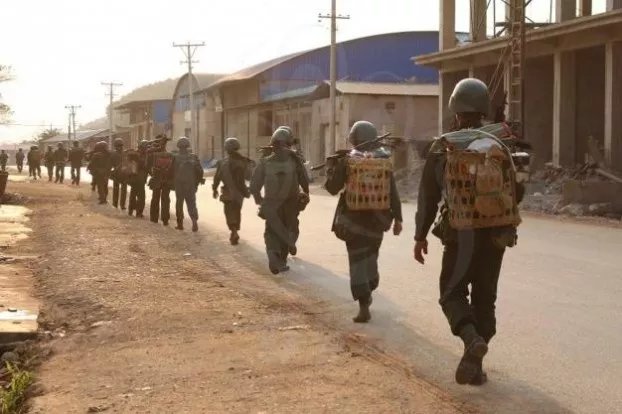The director of the President’s Office has said that the Burmese government has no intention to negotiate with Kokang rebels.
Talking to DVB on 19 February, Zaw Htay accused the Myanmar National Democratic Alliance Army of breaching Burma’s sovereignty.
“The MNDAA did not only attack the Burmese army, and neither were they fighting for rights. They carried out planned attacks on the government administration in Laogai [also written Laukkai], and they assaulted an administrative body that carries out constitutional duties.
“So we should not treat them as equal to other ethnic groups by negotiating with them, or responding through official channels.
“The government will do everything that is necessary to deal with them.”
Tun Myat Linn, spokesperson for the Kokang rebels, responded in kind.
“Since the [government] won’t negotiate, we assume they are planning a large scale attack. We have no other option but to defend ourselves,” said Tun Myat Linn, who serves as the MNDAA’s general secretary.
Speaking to DVB by telephone on Thursday, Tun Myat Linn denied his army is responsible for the destruction and upheaval in Laogai, which he says is under government control.
“We did not attack the government administration in Laogai. The director of the administration fled on his own initiative. Our troops are quite a distance from the town – we can’t even get close to there,” he said.
[related]
Tun Myat Linn has attributed blame to the Burmese army for the deaths of over 100 civilians – mostly Kokang ethnic people – who were killed in the first three days of fighting that began on 9 February, and warned that more civilian casualties may lead to further hostility.
President Thein Sein on 17 February signed into effect a 90-day state of emergency in the Kokang area, and conferred executive and judicial powers to the commander-in-chief of the Defence Services to “bring back normalcy” to the region, effectively instigating martial law.
Meanwhile, local and international condemnation has continued for an attack on a Red Cross aid convoy that was carrying displaced people near to Laogai on 17 February, in which two humanitarian volunteers were injured. The assailants are as yet unconfirmed, though unsubstantiated claims of ethnic rebel culpability have been repeated in many media sources, forcing the MNDAA to deny responsibility.
The US Embassy in Rangoon released a statement on Friday, saying that they “Honor the brave work of the Myanmar Red Cross Society team, and of all others providing services to those in need in Kokang and throughout the country.”
The US statement said that attacks on humanitarian staff were “unacceptable”, and called on all parties to allow the safe passage and protection of humanitarian staff and civilians in the conflict area.
Renata Dessallien, the UN humanitarian coordinator for Burma, released a statement on 18 February in which she called the attack a violation of international humanitarian law, and also called on all parties to ensure the safety of humanitarian staff.
She also voiced concern about the reports of thousands of people who have been displaced by the recent violence in the region. Tens of thousands of civilians have fled the Kokang capital and are now mostly being sheltered in Nansan on the Chinese side of the border, as well as the Shan town of Lashio.
The MNDAA is currently being supported by ethnic allies, most notably the Ta-ang National Liberation Army and the Arakan Army.
The Kokang Special Region, otherwise known as Shan State Special Region 1, has seen relative peace in the past two decades. The MNDAA, under the leadership of Peng Jiasheng, enjoyed two decades of ceasefire with the government. This calm faltered in 2009 when armed groups came under pressure to transform into a paramilitary Border Guard Force under the control of the Burmese military.
The MNDAA resisted this move, and hostilities from the army increased, purportedly due to MNDAA links with the drug trade.
Peng Jiasheng was subsequently ousted through government-backed mutiny in Kokang.



